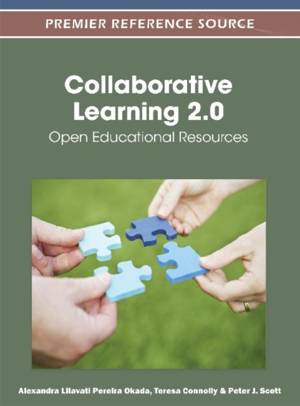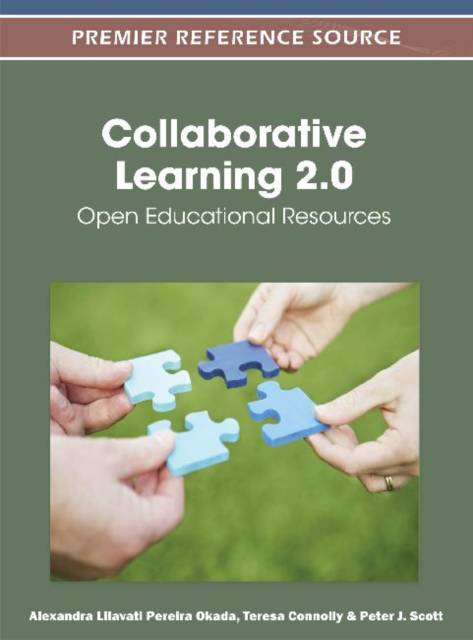
- Afhalen na 1 uur in een winkel met voorraad
- Gratis thuislevering in België vanaf € 30
- Ruim aanbod met 7 miljoen producten
- Afhalen na 1 uur in een winkel met voorraad
- Gratis thuislevering in België vanaf € 30
- Ruim aanbod met 7 miljoen producten
Zoeken
Collaborative Learning 2.0
Open Educational Resources
€ 281,95
+ 563 punten
Omschrijving
Current advances and convergence trends in Web 2.0 have changed the way we communicate and collaborate, and as a result, user-controlled communities and user-generated content through Web 2.0 are expected to play an important role for collaborative learning. Collaborative Learning 2.0: Open Educational Resources offers a collection of the latest research, trends, future development, and case studies within the field. Without solid theoretical foundation and precise guidelines on how to use OER and Web 2.0 for collaborative learning, it would certainly be very difficult to obtain all the benefits that these "user-generated content, resources and tools" promise. The purpose of this handbook is to understand how OERs and Web 2.0 can be deployed successfully to enrich the collaborative learning experience and ensure a positive outcome in terms of user generated knowledge and development of skills.
Specificaties
Betrokkenen
- Uitgeverij:
Inhoud
- Aantal bladzijden:
- 480
- Taal:
- Engels
- Reeks:
Eigenschappen
- Productcode (EAN):
- 9781466603004
- Verschijningsdatum:
- 31/03/2012
- Uitvoering:
- Hardcover
- Formaat:
- Genaaid
- Afmetingen:
- 218 mm x 282 mm
- Gewicht:
- 1383 g

Alleen bij Standaard Boekhandel
+ 563 punten op je klantenkaart van Standaard Boekhandel
Beoordelingen
We publiceren alleen reviews die voldoen aan de voorwaarden voor reviews. Bekijk onze voorwaarden voor reviews.










